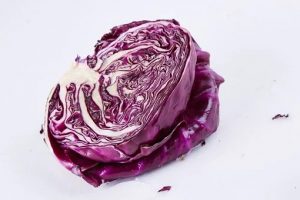Written by Jessica Patella, ND. This study demonstrates that Lactobacillus plantarum 200655 isolated from kimchi could have potential health benefits as a probiotic for older people.
 The older adult population is rapidly increasing. There were an estimated 382 million people over 60 years of age in 1980, that number increased to 962 million by 2017 1,2. One of the effects of aging is an increase in oxidative stress and a weakened immune system which can lead to an increased risk of disease, infection and even cancer 1,3,4. A recent study found the probiotic from kimchi as a beneficial probiotic for older people 1.
The older adult population is rapidly increasing. There were an estimated 382 million people over 60 years of age in 1980, that number increased to 962 million by 2017 1,2. One of the effects of aging is an increase in oxidative stress and a weakened immune system which can lead to an increased risk of disease, infection and even cancer 1,3,4. A recent study found the probiotic from kimchi as a beneficial probiotic for older people 1.
Oxidative stress is caused by a larger amount of reactive oxygen species (ROS) or free radicals that cause damage in the body. Elevated ROS levels are related to aging, cancer, Alzheimer’s disease and cardiovascular disease 1,5. These can be improved by supplementing antioxidants 5. Recently probiotics have been shown to reduce oxidative stress (ROS) and have antioxidant effects 5,6. In order to be beneficial, probiotics must be able to withstand the low pH of stomach acid, as well as digestive enzymes and adhere to the epithelial cells in the intestinal walls 1,7.
Kimchi is a traditional food in Korea that is made from fermenting vegetables at a low temperature. The aim of the recent research was to isolate Lactobacillus plantarum, the most common probiotic in the later stages of fermentation, to determine if it could survive the chemical environment of the body and its antioxidant and immune-enhancing effects in the body 1.
Lactobacillus plantarum (strain 200655) isolated from cabbage kimchi was used in the study. The L. plantarum strain from kimchi was evaluated in the lab and compared to other strains of probiotics (L. plantarum KCTC 3108 and L. rhamnosus GG). The following results were observed, L. plantarum from kimchi showed:
- The highest tolerance to gastric juice (0.3% pepsin, 3-hours), meaning it could withstand the acidic environment of the stomach.
- Higher auto aggregation ability, surface hydrophobicity and adhesion ability (on HT-29 cells), indicating it can adhere well to intestinal cell walls.
- Did not produce Beta-glucuronidase, which is a carcinogenic enzyme that negatively effects the liver
- The highest antioxidant effects and free radical scavenging, indicating it is a helpful anti-oxidant for the body.
- It was sensitive to ampicillin, tetracycline, chloramphenicol and doxycycline, indicating it could be helpful against antibiotic resistance problems.
- Produced more nitric oxide, induced nitric oxide synthase and increased interleukin-1beta and interleukin-6, indicating it helped enhance the immune system.
In conclusion, all of the above results indicate that L. plantarum from kimchi could be useful as a probiotic for older people 1. Based on this study, a study of L. plantarum from kimchi or consuming kimchi in an older population would be beneficial to confirm results in a human study.
Source: Yang, Seo-Jin, Ji-Eun Lee, Sung-Min Lim, Yu-Jin Kim, Na-Kyoung Lee, and Hyun-Dong Paik. “Antioxidant and immune-enhancing effects of probiotic Lactobacillus plantarum 200655 isolated from kimchi.” Food science and biotechnology 28, no. 2 (2019): 491-499.
© The Korean Society of Food Science and Technology and Springer Science+Business Media B.V., part of Springer Nature 2018
Posted June 4, 2020.
References:
- Yang SJ, Lee JE, Lim SM, Kim YJ, Lee NK, Paik HD. Antioxidant and immune-enhancing effects of probiotic Lactobacillus plantarum 200655 isolated from kimchi. Food Sci Biotechnol. 2019;28(2):491-499.
- Department of Economic and Social Affairs of the United Nations Secretariat. World Population Ageing. United Nations; 2017; 1-124.
- Castelo-Branco C, Soveral I. The immune system and aging: a review. Gynecological endocrinology : the official journal of the International Society of Gynecological Endocrinology. 2014;30(1):16-22.
- Hopkins MJ, Sharp R, Macfarlane GT. Age and disease related changes in intestinal bacterial populations assessed by cell culture, 16S rRNA abundance, and community cellular fatty acid profiles. Gut. 2001;48(2):198-205.
- Mishra V, Shah C, Mokashe N, Chavan R, Yadav H, Prajapati J. Probiotics as potential antioxidants: a systematic review. J Agric Food Chem. 2015;63(14):3615-3626.
- Chang C-K, Wang S-C, Chiu C-K, Chen S-Y, Chen Z-T, Duh P-D. Effect of lactic acid bacteria isolated from fermented mustard on immunopotentiating activity. Asian Pacific Journal of Tropical Biomedicine. 2015;5(4):281-286.
- Han Q, Kong B, Chen Q, Sun F, Zhang H. In vitro comparison of probiotic properties of lactic acid bacteria isolated from Harbin dry sausages and selected probiotics. Journal of Functional Foods. 2017;32:391-400.

